
US-South Korea nuclear submarine deal: What does it mean?
2025-11-15 23:00:19
jake kwon,Seoul and
gavin butler,singapore
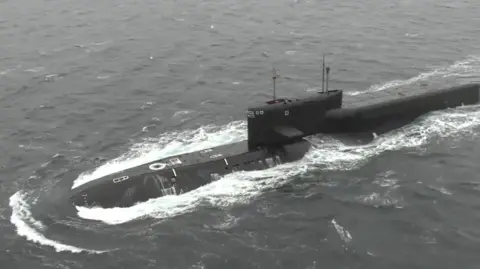 Reuters
ReutersThe South Korean government announced that it has finalized an agreement to build nuclear-powered submarines in partnership with the United States.
The United States approved the “attack submarines” and agreed to cooperate on obtaining fuel, according to a fact sheet released by the White House on Thursday.
The agreement represents an important step in South Korea’s relations with the United States, and comes amid a period of heightened tensions on the Korean Peninsula: with a nuclear-armed North Korea, and an expansionist China in the West.
Here’s what you need to know about the agreement.
What’s in the agreement?
The agreement between the United States and South Korea comes as leaders of the two countries reached a broad trade agreement earlier last month that would see reciprocal tariffs reduced to 15% from 25%.
US President Donald Trump had imposed a tariff rate on Seoul of 25% earlier this year – which his counterpart Lee Jae-myung was able to negotiate down to 15%, after Seoul said it would invest $350bn (£265bn) in the US, including $200bn in cash investments and $150bn in shipbuilding.
In a White House statement issued Thursday, the United States said it had “gived approval to the Republic of Korea to build nuclear-powered attack submarines… [and would] “Working closely to enhance the requirements for this project, including access to fuel.”
In a previous post on his social media platform Truth Social, Trump said the ships would be built at a Philadelphia shipyard operated by South Korean company Hanwha.
Only six countries currently have nuclear-powered strategic submarines: the United States, China, Russia, the United Kingdom, France, and India.
South Korea already has about 20 submarines, but they are all diesel-powered and therefore need to surface frequently. Nuclear submarines are also capable of operating larger and faster.
“I gave them the OK to build a nuclear-powered submarine, instead of the older, less intelligent diesel-powered submarines they have now,” Trump wrote on Truth Social.
South Korea is a major power when it comes to civilian nuclear energy. It had a nuclear weapons program in the 1970s, but abandoned it after American pressure.
Its ability to enrich or reprocess uranium is therefore limited by the United States because it is completely dependent on imports.
Why does South Korea want nuclear submarines?
The latest ship program aims to confront North Korea, which recently revealed that it is seeking to implement its own nuclear submarine program.
President Lee told Trump at the APEC summit last month that South Korea needed them for this express purpose.
In a television interview last week, Ahn Gyu-bak, South Korea’s defense minister, said the nuclear submarines would be a “proud achievement” for South Korea, and a major leap in strengthening the country’s defense against the North.
He added that the stealth ability of nuclear submarines would keep North Korean leader Kim Jong Un “awake at night.”
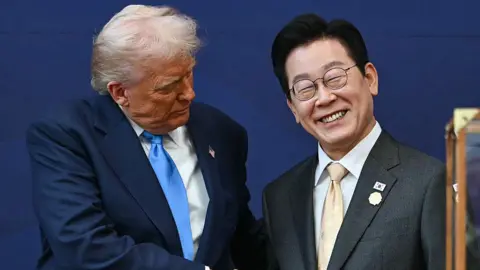 Getty Images
Getty ImagesDoes North Korea have nuclear submarines?
North Korea is also seeking to develop a nuclear submarine program — possibly with Russia’s help, according to South Korean officials.
In March 2025, North Korea revealed photos of what it claimed was a nuclear-powered submarine that was under construction, showing Kim visiting a shipyard.
Pyongyang is expected to acquire the submarines within the next few years.
It is also estimated that North Korea possesses an arsenal of about 50 nuclear weapons, as part of its broader nuclear weapons programme.
Jo Bi-yeon, a research fellow at the Sejong Institute, suggested that Seoul’s acquisition of nuclear submarines would help it stay afloat in the escalating arms race in East Asia.
She told the BBC: “North Korea’s nuclear weapons are an established fact.” “[South Korea acquiring] Nuclear submarines are just a step in the larger trend of escalating tensions.
Will this inflame tensions on the Korean Peninsula?
It is unclear how much nuclear-propelled submarines contribute to South Korea’s defense capabilities – and although they are expensive, they do not completely change the balance of power on the Korean Peninsula, according to some experts.
Yang Ok, a research fellow at the Asan Institute for Policy Studies, told the BBC that the primary goal of nuclear submarines is to reassure South Korean voters that their government is responding to North Korea’s nuclear threat.
“South Korea cannot develop its nuclear weapons to confront North Korea,” Dr. Yang said. “What can they do? Deploy nuclear submarines.”
Dr. Yang believes North Korea may enjoy this change, because it strengthens its justification for retaining nuclear weapons – meaning it will become more difficult to demand that Pyongyang give up its nuclear arsenal.
However, Cho emphasized the strategic advantage South Korea would gain from the new submarine deal, calling it a “big change” that means “South Korea is now a regional player.”
“The best thing about a nuclear submarine is its speed,” she said. “It can now go fast and far and South Korea can work with more countries.”
What’s in it for the United States?
For Washington, support for South Korea’s nuclear submarine program is likely aimed at putting pressure on both North Korea and China.
“Trump has placed the burden of defense spending on South Korea,” Dr. Yang explained. “South Korea will significantly expand its defense budget. It will serve as America’s proxy in pressuring China and North Korea.”
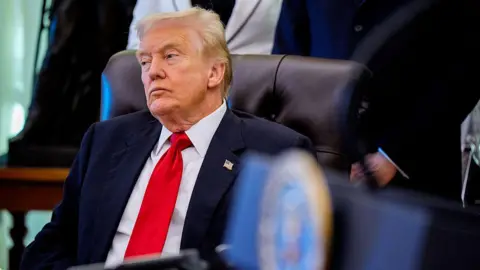 Getty Images
Getty ImagesThe United States and China have long competed for strategic influence in South Korea, leaving Seoul walking a geopolitical tightrope. Recently, China has begun to increase its maritime activity near South Korea’s maritime borders – a move similar to that seen in the South China Sea.
Dr. Yang said Beijing must be “angry” over the nuclear submarine agreement that South Korea concluded with the United States.
Following the announcement of the deal, the Chinese Ambassador to South Korea, Dai Bing, said he hopes South Korea will handle this issue wisely, taking into account the concerns of all parties.
Dai also added that Beijing is communicating with Seoul on this issue through diplomatic channels, and stressed that “the (security) situation on the Korean Peninsula and in the region remains complex and sensitive.”
What’s next?
Although President Trump has said the submarines will be built in Philadelphia and will provide jobs for the United States, South Korean officials have stressed that they must be built domestically, as existing facilities can deliver them in a much shorter timeline.
South Korean Prime Minister Kim Min-seok himself said during a parliamentary hearing that a South Korean-owned shipyard in Philadelphia “does not have the capacity” to build such ships, according to reports.
Hanwha, which owns the shipyard, has yet to comment on the matter.
But now that an agreement has been reached, the next step is to amend the nuclear agreement between the two countries, in a way that allows the United States to provide nuclear fuel and fence its military use.
https://ichef.bbci.co.uk/news/1024/branded_news/7140/live/9413dec0-c150-11f0-8bc9-0d0d258ea657.jpg










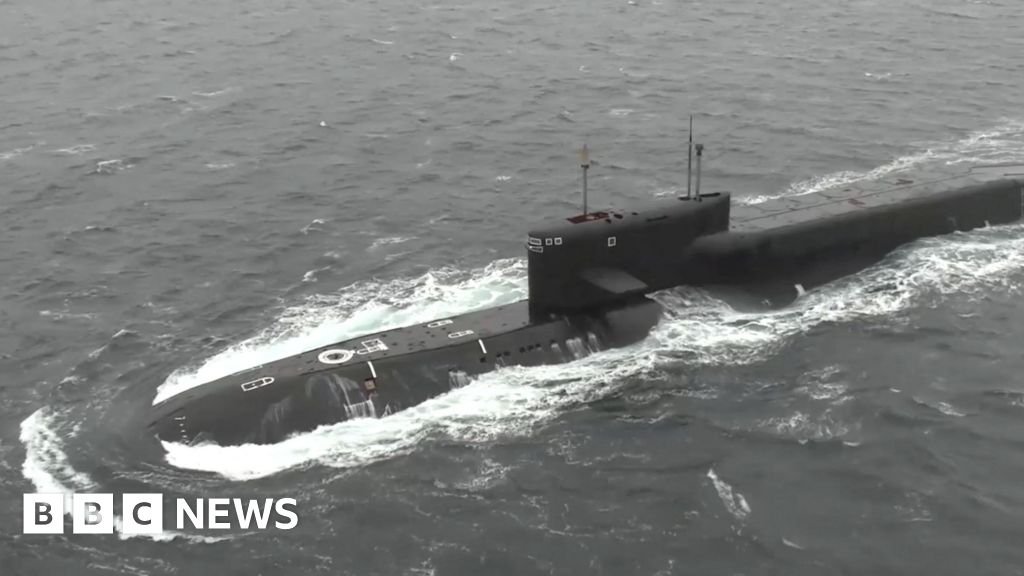











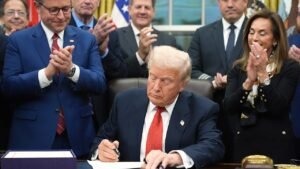



إرسال التعليق